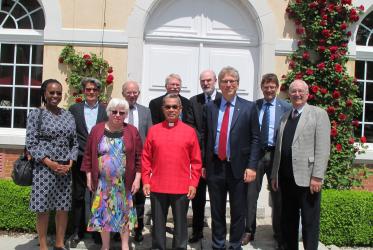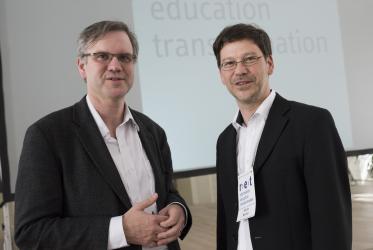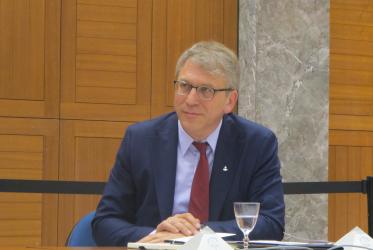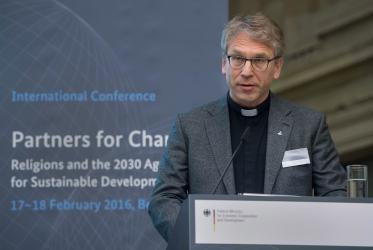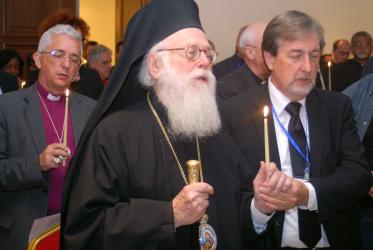Displaying 61 - 80 of 104
26 July 2016
Panel discussion fields ideas on European identity
26 April 2016
Symposium focuses on religion, violence, extremism
04 February 2016
WCC/UN conference calls for coordinated action on refugee crisis
20 January 2016
At Nordic conference, Tveit reflects on role of hope in advocacy
12 January 2016
Rebuilding a smashed church in Albania
23 December 2015
WCC strongly condemned terror attacks
14 November 2015
Religion and Violence relationship probed
29 October 2015

